Jump to: examples | practical tools and resources
This section of the Amplifying Maternal Voices Toolkit explores ways to connect with local organisations to advocate for positive changes in perinatal mental health services. It provides examples and ideas for groups and individuals looking to collaborate and influence their local landscape.
The following challenges came up in various conversations with MMHA lived experience champions, local contacts and members:
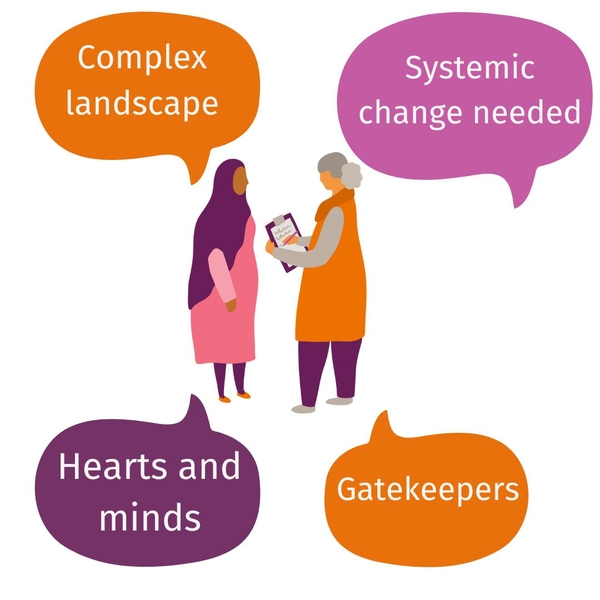
The landscape can be complex and challenging for making local connections
“Within our local system we have multi-disciplinary team meetings including the perinatal board where most general issues can be raised and discussed. It is harder on an individual basis, when a family who are part of our caseload are not receiving the care and support they both need and deserve from statutory services, as much as we try to advocate and navigate the system on their behalf, unfortunately the pathway still results in them being passed from team to team, having to repeat their story, repeat assessments and sometimes after all of this still not receiving any additional support beyond what we are able to provide as third sector partners. I am hopeful that this will change. We are part of a perinatal and infant mental health pathway review workstream and will be representing the views of the families we support at grassroots level, particularly those who have intersecting needs.”
MMHA Lived Experience Champion
However, collaborating with supportive organisations can be a powerful way of connecting through combining lived experience and community expertise with clinical practice.
For example, MMHA lived experience champions have shared their stories and insights at various training sessions run by the Institute of Health Visiting (iHV).
“It has been a pleasure to work collaboratively again with the Institute of Health Visiting. We have been able to regularly involve lived experience via the MMHA Champion Network in the iHV training. This has provided personal perinatal mental health insights for health visitors to help shine a light on hidden voices.”
MMHA Lived Experience Champion
For example, PND and Me – Perinatal Mental Health Peer Support and Awareness
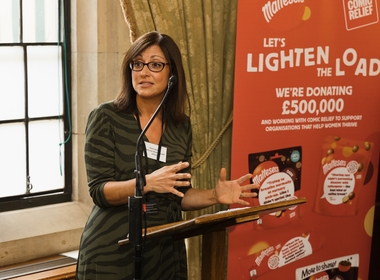
Maria Bavetta, co-founder of Maternal OCD and MMHA's Head of Engagement, writes about her maternal OCD advocacy journey.
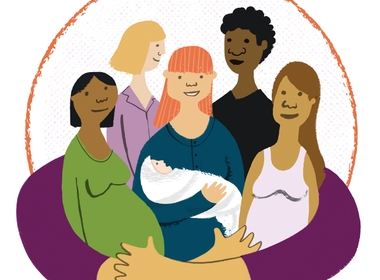
In Bradford, the council, health and voluntary and community sector partners have come together to support residents with the cost-of-living crisis.
“Integrated care boards and partnerships have a statutory role in population health management. They are uniquely able to bring together the NHS, local government, multiple other public services and civil society organisations to explore how best to improve health for all, to reduce health inequalities, and to use public money wisely in their areas.
There are few better areas for population health management than maternal mental health and wellbeing. It is a unique opportunity to improve the lives of women and establish good building blocks for the next generation. Good maternal mental health boosts a baby’s wellbeing, with lifelong benefits (Bauer et al., 2014).”
Download the briefing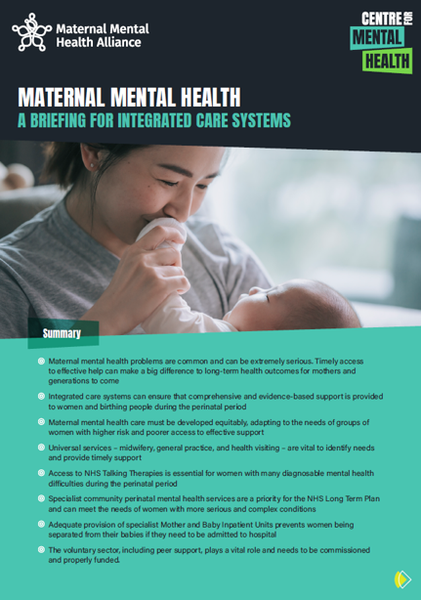
“Job roles can change hands frequently, you work hard to build up good relations and then someone leaves and it’s not as easy with new staff. Some will be more pro co-production than others. Try not to feel disillusioned when this happens, you will find your people who champion the cause of co-production and lived experience. Keep those partnerships strong. Professionals are often busy, so make a clear plan of what you want to do, what you hope to achieve and how they can help with it. They’ll be much more likely to engage with it that way as they’ll hopefully see the potential.” Leanne, MMHA Lived Experience Champion
We hear from the Voluntary Community and Social Enterprise community how hard it is to navigate the commissioning landscape when we're meeting massive demand and operating within small teams. It's so important we are at decision-making tables when an integrated health system is clearly the way forward.
Natalie Nuttall, Hearts and Minds Partnership
Check out these links for ideas and templates for contacting your MP:
Speak to as many people as you can, ask them for introductions to others, not just within the healthcare services and commissioners, but also speak to your local Councillors, MPs and other third sector mental health services. Remember to also ask how you can help them - this is never a one-way street.
MMHA Lived Experience Champion
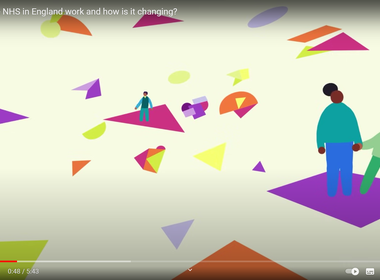
Animation bt The King's Fund explaining the key organisations that make up the NHS and how they can collaborate with partners in the health and care system to deliver joined-up care.
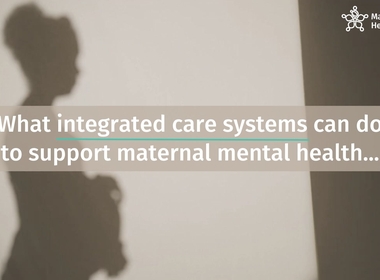
It’s important that all integrated care systems understand the crucial role they have in ensuring every new and expectant mother receives the right mental health support.
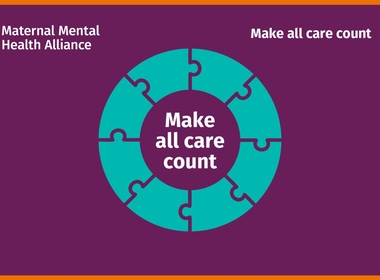
MMHA's ‘Make all care count’ campaign highlights and defines the essential services that can dramatically affect the lives of women with, or at risk of, poor maternal mental health.
“Go out there and tell your story, tell them the importance of peer support and early intervention in respect to perinatal health care. Shout, dance and be creative...someone will eventually listen. Have your facts ready and be solution focused so your answers can inform change!”
Sapna, MMHA Lived Experience Champion
“Just do it! All the services we have now are because people previously have shouted out the need for them. Often as life moves on those original voices naturally go quiet. We always want new ones to continue the much-needed work. Remember that what happens in the perinatal period can influence a lifetime.”
Elaine, MMHA Lived Experience Champion
Please note the MMHA is not responsible for the content of external sites.
Explore the other sections, or head back to the Toolkit landing page.
This section is split into two, looking at examples of the barriers women and families may face to both accessing perinatal mental health services and to local involvement in groups and organisations.
Understand how groups and organisations can demonstrate the impact of local initiatives. Ideas here may be useful for those seeking funding or to highlight gaps in current perinatal mental health services.
Learn how to share stories about perinatal mental health in a safe way. Ideas here may be useful to local groups engaging those with lived/living experience, as well as for people with lived/living experience wanting to tell their stories safely.
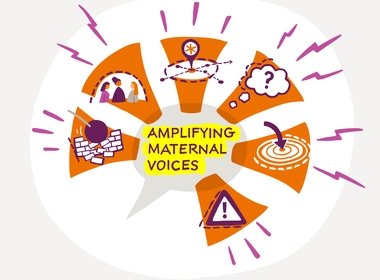
This toolkit offers creative ideas and practical tools to empower individuals in shaping perinatal mental health care at the local level.